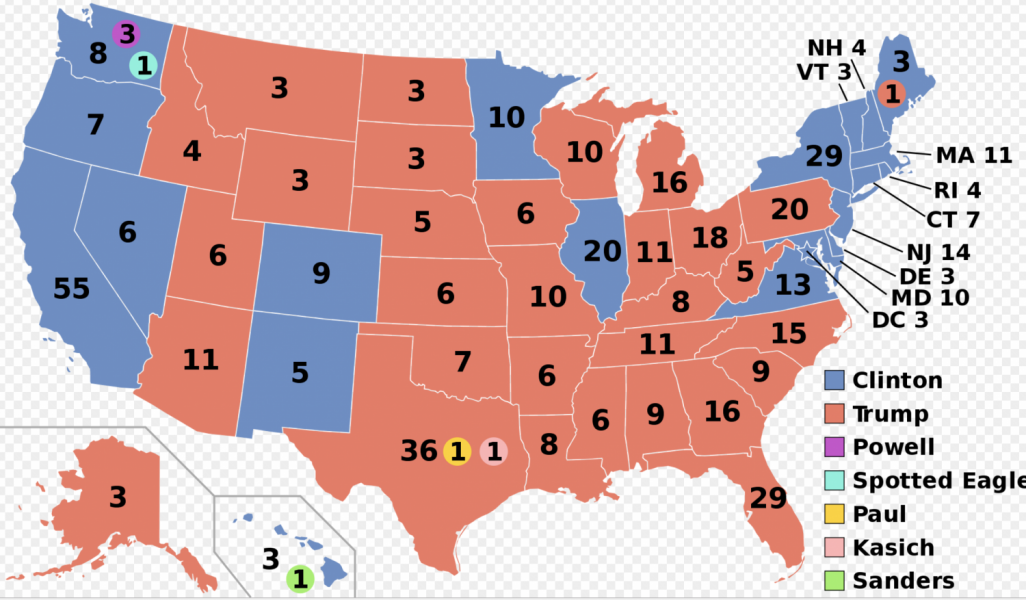The Electoral College Versus the Popular Vote
October 2, 2017
Many ERHS students say they think the Electoral College is no longer fair and does not accurately take into account people’s votes, especially in light of last November’s election.
Some people, like government teacher Mr. Scott Sorensen, say that the Electoral College was important to our country’s founders, but that the majority vote should determine who becomes president.
Mr. Sorensen said he believes that “the will of the majority should dictate the outcome of an election.” He continues that, “If the electoral college votes the way of a candidate that did not receive the majority of the popular vote, people will feel that their vote does not matter and may [stop] from participating in future elections.”
Many students agree. Senior Teresa Ozga said that the Electoral College is “just a form of disenfranchisement of legally able citizens.” She also suggests that, instead, “a candidate who wins the majority vote of a state should receive that percentage of electoral votes.”
According to history.com, there have only been five instances where the popular vote has lost the presidential election; these situations include Andrew Jackson in 1824, Samuel Tilden in 1876, Grover Cleveland in 1888, Al Gore in 2000, and, most recently, Hillary Clinton in 2016.
Junior Marie Moukoury said that her and her sister, Annette, both believe that the Electoral College “does not serve its [intended] purpose anymore.” They went on to explain that “citizens are more educated and know about the candidate they are voting for,” so if the majority want one president, and they are actually knowledgeable, then “that should stand.”
According to CBS News, many states give fines for electors voting differently from their districts. Despite this, some feel so strongly that they decide to do so anyway; these citizens are called “faithless electors.” In this past election, there were seven of these electors, most of whom did not vote for Hillary Clinton or Donald Trump.
The Electoral College is a group of electors put in place at America’s founding. Each state has a specific number of electors proportional to its population size, and they all vote around a month after the actual election.
According to History Central, its primary purpose was to ensure that knowledgeable citizens decide our president; they believed that if the president was decided by the majority, many uninformed or manipulated people may vote and chose someone detrimental to the country’s health.

Electoral College Votes from the 2016 Election




